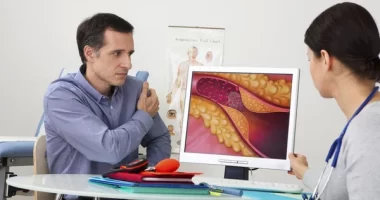Haircuts resumed for the first time in months in April, ditch the clippers and DIY jobs. But some people may have committed to growing it out and have a set goal they’d like for their future hairdos. As such, they will wonder how quickly their hair will grow and whether they can speed up the process.
How quickly does hair grow?
Hair grows from a root underneath the scalp, fuelled by blood vessels.
The blood creates cells that push the hair through the skin, and it dies on the way.
While the biological processes the same for everyone, hair growth speed varies.
According to the American Academy of Dermatology (AAD), hair grows at a rate of roughly half an inch per month.
Per week, this works out to around 0.3 centimetres, up to six inches a year.
But health, age and hair type will all impact the rate at which hair grows.
Hair follicles also tend to die out as people age.
Can you make hair grow faster?
Given the biology involved, it is clear hair requires the right conditions and nutrition to grow.
Much like any other part of the body, improper care can cause damage and ultimately impact hair growth rates.
As such, it is possible to help hair grow faster by taking care of it.
People can help cultivate hair growth by taking the following steps:
- Use the right shampoo, conditions, masks and treatments
- Keep the scalp healthy
- Get regular haircuts (every two to four months)
- Eat a healthy diet
- Take supplements such as vitamin D or Omega-3
There are signs to look out for that show hair isn’t growing enough, as well.
Dominic Burg, a trichologist and chief scientist at Evolis Professional, told Cosmopolitan there are indicators that people’s hair cycles aren’t long enough.
He said: “You lose about 50 to 100 hairs every day, which is about 0.001 percent of your total hair.
“Now, when you notice that amount doubling or tripling, that’s an indication that your hair cycle is too short.” 1
Post source Daily Express









Comments are closed.